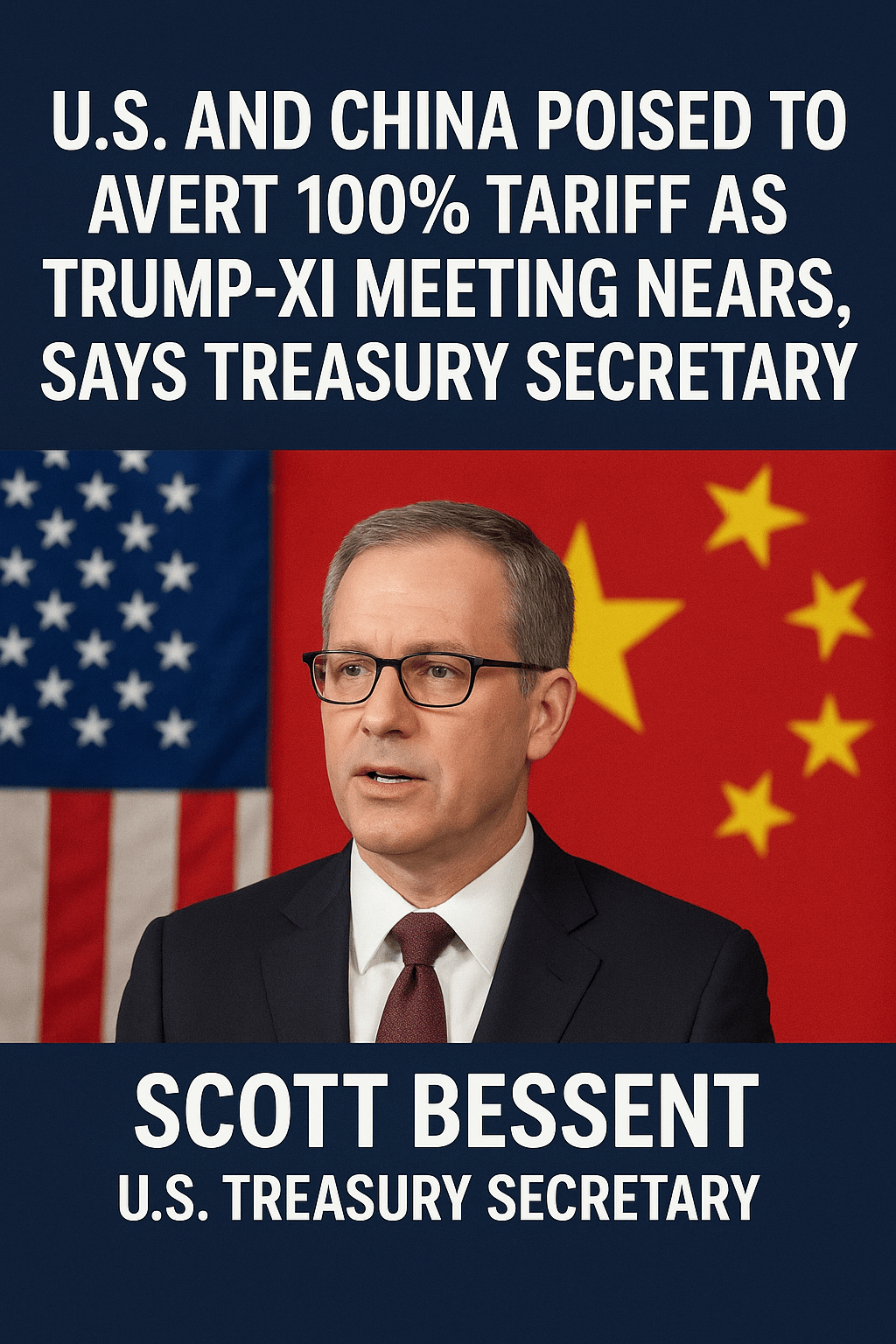The United States and China are likely to reach a trade deal to avoid the imposition of a new 100% tariff on Chinese goods, according to U.S. Treasury Secretary Scott Bessent. Following two days of high-level negotiations with Beijing’s top trade officials, Bessent indicated that both nations have reached a “substantial framework” to de-escalate tensions ahead of President Donald Trump’s Asia tour.
Speaking to NBC News’ Meet the Press on Sunday, Bessent said, “China is ready to make a deal after two days of negotiations. We’ve developed a framework that will prevent the 100% tariffs and create room to address several key issues.”
The talks come amid heightened economic and geopolitical strains, particularly over China’s plans to impose restrictions on rare earth mineral exports—critical materials for global electronics and defense industries. Bessent said he anticipates a “deferral on the rare earth export controls,” a move that could ease one of the most contentious points between Washington and Beijing.
China currently dominates the global production and processing of rare earths, prompting concern in Washington over potential supply disruptions. “President Trump gave me a great deal of negotiating leverage with the threat of the tariffs,” Bessent added. “This framework allows both sides to move forward constructively.”
President Trump arrived in Malaysia on Sunday to attend the ASEAN Summit, marking the start of a five-day Asia tour that will include a meeting with Chinese President Xi Jinping in South Korea on Thursday. According to Bessent, Trump is also expected to visit Xi in Beijing early next year, likely before the Lunar New Year on February 17, with a follow-up meeting anticipated in Washington ahead of the G20 Summit next fall.
Trade was not the only issue on the table. The U.S. plans to raise the ongoing fentanyl crisis—an issue Trump has repeatedly blamed on China’s alleged failure to regulate the export of precursor chemicals used in the production of the deadly opioid. “I think we will be able to discuss China helping us get this terrible fentanyl crisis under control,” Bessent said. He also pointed to potential new agreements involving soybean and agricultural imports benefiting American farmers.
Chinese officials echoed optimism following the talks. Li Chenggang, China’s top trade negotiator, said both sides had reached a “preliminary consensus” covering trade truce extensions, fentanyl cooperation, and export controls. Li, along with Vice Premier He Lifeng, led discussions in Malaysia with Bessent and U.S. Trade Representative Jamieson Greer.
President Trump signaled confidence about the outcome of the talks, stating, “I think we’re going to have a deal with China. We’ve agreed to meet in China and in the U.S.—either in Washington or at Mar-a-Lago.”
If successful, the upcoming meetings could mark a significant step toward stabilizing one of the world’s most critical economic relationships—one strained by tariffs, technology restrictions, and geopolitical rivalries.




